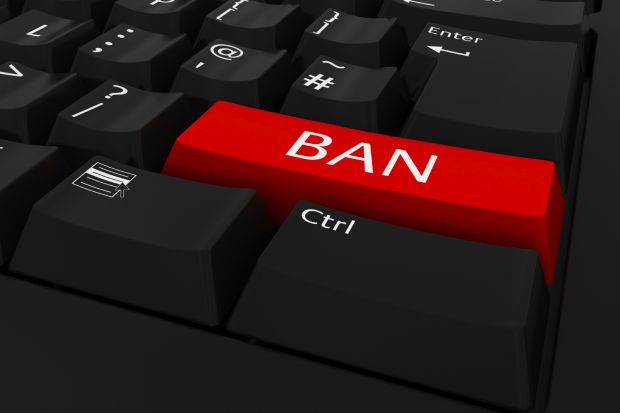So, Lake Superior State University in Michigan has published a list of the most problematic words in the English language in the hope that it will break the internet.
Answering a question by beginning with the word “so”, and using the words “problematic” and “stakeholder” and the phrases “price point” and “break the internet” are among the terms that made it on to the institution’s List of Words Banished from the Queen’s English for Mis-use, Over-use and General Uselessness.
The list was compiled from nominations received from word-watchers across the world throughout the year, some of whom are quoted below. The tradition was created by W. T. (Bill) Rabe, a former public relations director, in 1976.
The 2016 list of banished words
1. So
“So” was banished in 1999, due to phrases such as, “I am SO down with this list!”, but it topped this year’s table for “being overused as the first word in the answer to ANY question”, according to Bob Forrest of Tempe, Arizona. “For instance, ‘How did you learn to play the piano?’ Answer: “So my dad was in a classical music club…’”
2. Conversation
Contributors took issue with the word “conversation”, in particular, the invitation from online publications to “join the conversation”. Gayle from Cedarville, Michigan, wondered if “debate has become too harsh for our delicate sensibilities. Now we are all encouraged to have a ‘conversation’, and everything will somewhat be magically resolved.”
3. Problematic
The word “problematic” also made this year’s list, with the university noting that Urban Dictionary (an online lexicon of slang and informal English) describes the term as “a corporate-academic weasel word”. Sharon Martin from Hagerstown, Maryland, added: “Somewhere along the line, this word became a trendy replacement for ‘that is a problem’. I just hate it.”
4. Stakeholder
In recent years “stakeholder” has expanded from describing someone who may actually have a stake in a situation or problem to being over-used in business to describe customers and others, the university said. Gwendolyn Barlow from Portland, Oregon, said the word is often used alongside “engagement”. “If someone is disengaged, they’re not really a stakeholder in the first place. LSSU, please engage your stakeholders by adding this pretentious jargon to your list,” she said.
5. Price point
Why use one word when you can use two? Kevin Carney of Chicago said that this “alliterative mutation”, which seems to replace the word “price” or “cost”, may be standard business-speak, but “must it contaminate everyday speech?”
6. Secret sauce
Another “business” word to make the list of linguistic pet peeves is “secret sauce”, which is used to describe a special feature or technique kept secret by an organisation and regarded as the main factor in its success. “Is this a metaphor for business success based on the fast food industry?” asked John Beckett of Ann Arbor, Michigan.
7. Break the internet
An alternative to “going viral”, Tim Bednall from Melbourne, Australia, summed up this phrase as an “annoying bit of hyperbole about the latest saucy picture of controversy that is already becoming trite”.
8. Walk it back
This phrase means to retract a statement or reverse an action or decision. “It seems as if every politician who makes a statement has to ‘walk it back’, meaning retract the statement, or explain it in laborious detail to the extent that the statement no longer has any validity or meaning once it has been ‘walked back’,” said Max Hill from Killeen, Texas.
9. Presser
More commonly used in the US, this shortened form of “press release” and “press conference” was found to be not so impressive by respondents. “Not only is there no intelligent connection between the word ‘presser’ and its supposed meaning, this word already has a definition: a person or device that removes wrinkles,” argued Constance Kelly from West Bloomfield, Michigan. “Let’s either say ‘press conference’ or ‘press release’ or come up with something more original, intelligent and interesting!”
10. Manspreading
The institution said that this word is familiar to those in bigger cities, where seats on the bus or subway are sometimes difficult to find. Carrie Hansen from Caledonia, Michigan, said: “Men don’t need another disgusting-sounding word thrown into the vocabulary to describe something they do… You’re just taking too much room on this train seat, be a little more polite…”
11. Vape
David Ervin of Sault Ste. Marie, Ontario said he hopes that the word vape, which is used to describe the act of smoking e-cigarettes, “goes up in smoke”.
12. Giving me life
The university said that this phrase refers to anything that may excite a person, or something that causes one to laugh. For example, “This list of banished words is giving me life!”
13. Physicality
John Kollig of Jamestown, New York, says that this word is overused by every sports broadcaster and writer. “What the heck does it mean?” asked Linda Pardy of Sault Ste. Marie, Ontario.
